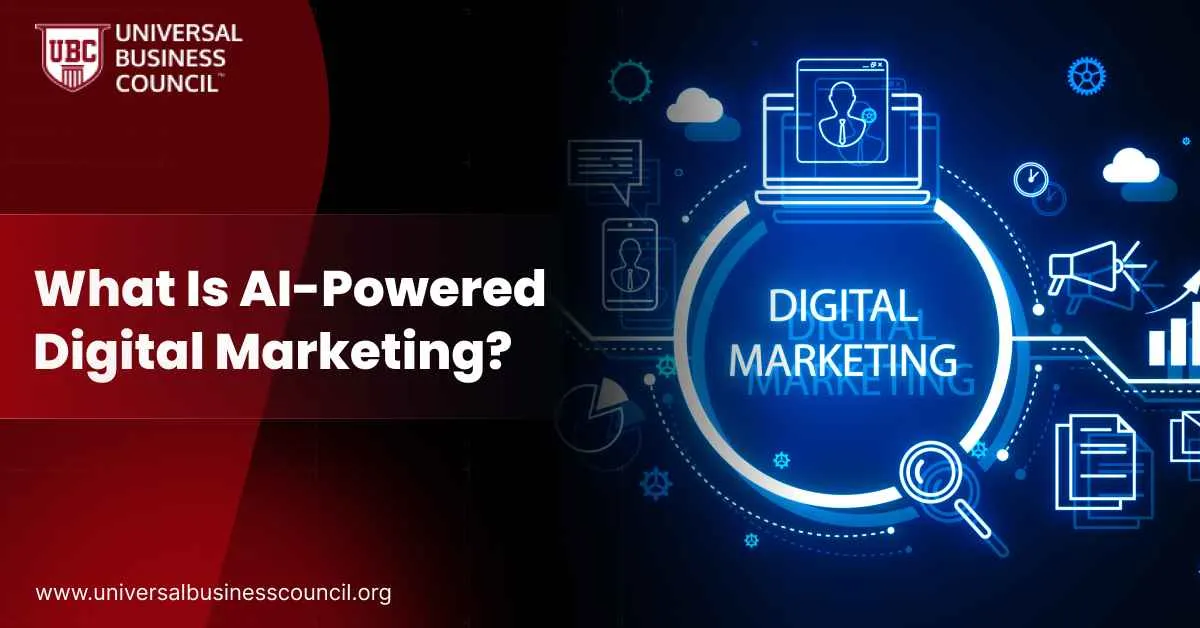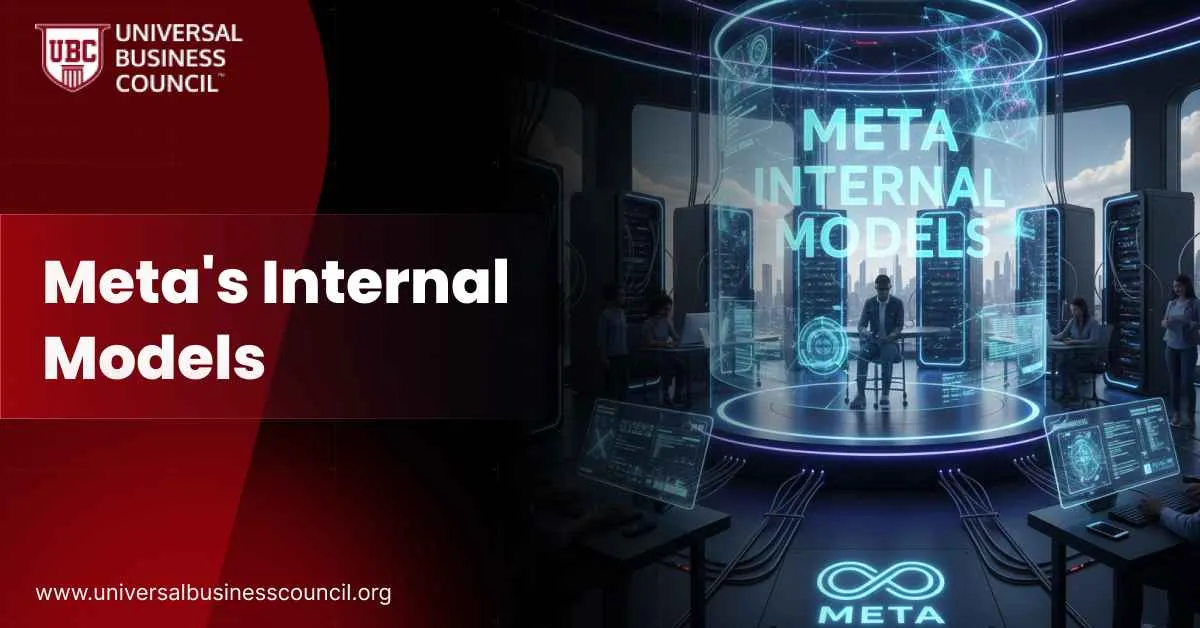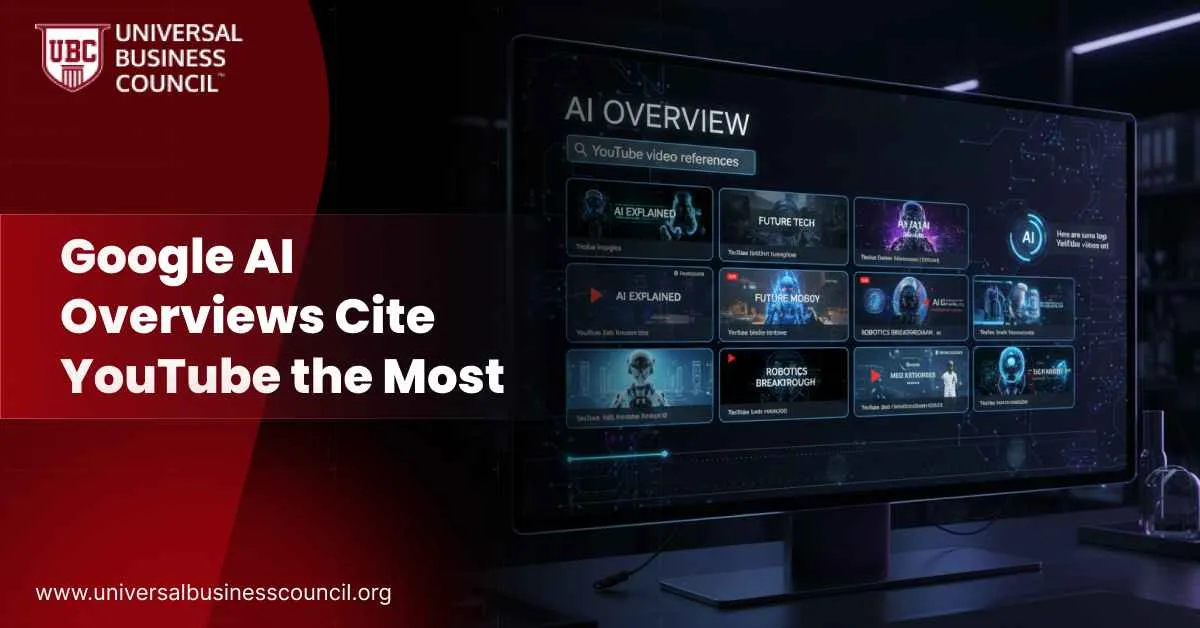 Artificial Intelligence is rewriting the rules of digital marketing. What began as simple automation and analytics has evolved into intelligent systems that create, optimize, and personalize campaigns in real time. In 2025, AI-powered digital marketing is not just about saving time — it’s about enhancing creativity, precision, and performance across every customer interaction.
From predictive analytics to generative content creation, AI tools are now at the center of every modern marketing strategy. For professionals who want to master this evolving field, learning AI Powered Digital Marketing is one of the most practical ways to build hands-on experience and learn how AI transforms the entire marketing lifecycle.
Artificial Intelligence is rewriting the rules of digital marketing. What began as simple automation and analytics has evolved into intelligent systems that create, optimize, and personalize campaigns in real time. In 2025, AI-powered digital marketing is not just about saving time — it’s about enhancing creativity, precision, and performance across every customer interaction.
From predictive analytics to generative content creation, AI tools are now at the center of every modern marketing strategy. For professionals who want to master this evolving field, learning AI Powered Digital Marketing is one of the most practical ways to build hands-on experience and learn how AI transforms the entire marketing lifecycle.
What Is AI-Powered Digital Marketing?
AI-powered digital marketing refers to the use of artificial Intelligence and machine learning technologies to automate, analyze, and improve marketing efforts. These systems learn from data, predict outcomes, and make decisions that help brands deliver the right message to the right audience at the right time.
Rather than replacing marketers, AI acts as a partner — one that handles repetitive tasks, identifies insights hidden in large datasets, and even generates creative content.
For those looking to understand the underlying technology that enables this transformation, the Deep Tech Certification
from Blockchain Council offers detailed insights into how AI models, data pipelines, and neural networks operate in real-world business environments.
How AI Is Changing the Marketing Landscape
The global AI-in-marketing market is projected to reach $47.32 billion in 2025
, expanding at a compound annual growth rate (CAGR) of nearly 36.6%
through 2028. This explosive growth reflects how integral AI has become to marketing success.
1. Data-Driven Decision-Making
AI processes vast amounts of data in real time, uncovering trends that humans might miss. Marketers use AI tools to analyze customer journeys, predict behavior, and personalize experiences with precision.
For example, predictive analytics models can forecast which users are most likely to convert or churn, allowing teams to adjust strategies proactively.
2. Generative Content Creation
Generative AI has revolutionized how brands create content. From writing ad copy and blog posts to designing visuals and editing videos, AI tools like Jasper, Copy.ai, and Synthesia enable faster and more scalable content production.
This shift allows marketers to focus on strategy and storytelling rather than production bottlenecks. It’s not about replacing human creativity — it’s about amplifying it.
3. Real-Time Personalization
AI tailors messages to individual preferences using behavioral and contextual data. Email campaigns, website experiences, and ad creatives now adapt dynamically to each user.
According to recent marketing data, over 88% of marketers
now use AI tools for personalization, making it one of the top reasons for adopting AI.
4. Predictive Customer Insights
Predictive models use machine learning to estimate future outcomes based on historical data. They help marketers predict purchase intent, identify high-value customers, and optimize budget allocation.
For example, an e-commerce brand can use predictive analytics to target users most likely to buy again within the next 30 days, improving lifetime value.
Core Technologies Behind AI Marketing
AI-powered marketing runs on several core technologies that work together to collect, process, and act on data.
Machine Learning (ML)
ML algorithms learn from patterns in data to make informed predictions or recommendations. They are used in ad targeting, pricing optimization, and recommendation engines.
Natural Language Processing (NLP)
NLP allows AI to understand and generate human language. This technology powers chatbots, sentiment analysis, and automated content creation.
Computer Vision
This technology enables systems to recognize and interpret images or videos, which is essential for ad placement, product tagging, and visual search.
Generative AI
Generative AI models like GPT and DALL·E can create text, images, or video content from prompts, empowering marketers to scale content faster than ever before.
Professionals interested in the engineering and analytics aspects of these technologies can explore the Tech Certification
from Global Tech Council, which focuses on the technical foundations of modern AI applications.
Applications of AI in Digital Marketing
AI is being used across nearly every marketing channel. Below are key applications shaping the future of digital engagement.
1. Content Marketing
AI tools analyze search intent and user engagement data to suggest topics, keywords, and formats that are most likely to perform well. Some even optimize the tone and length of articles to fit audience preferences.
Marketers now use AI to create entire content calendars, automate SEO optimization, and repurpose content across multiple channels.
2. Paid Advertising
Ad platforms like Google Ads and Meta Advantage+ use machine learning to optimize targeting, bidding, and placements. These systems learn from conversion data and adjust automatically to maximize ROI.
AI ensures every dollar is spent efficiently, often outperforming manual campaign management.
3. Email Marketing
Automation and personalization are transforming email campaigns. AI tools can predict the best send times, subject lines, and messaging for each recipient.
This reduces spam complaints and increases open and conversion rates significantly.
4. Social Media Management
AI helps marketers schedule posts, analyze engagement trends, and identify top-performing content. Platforms such as Hootsuite and Buffer integrate AI analytics to guide decision-making.
More advanced AI tools can even suggest hashtags or captions optimized for engagement.
5. Customer Service and Chatbots
AI chatbots have become standard on websites and social media channels. They provide 24/7 support, handle FAQs, and even process transactions, improving customer satisfaction and reducing operational costs.
By integrating natural language models, these chatbots now understand intent and context far more accurately than earlier versions.
6. Predictive Lead Scoring
AI automates lead qualification by analyzing behavior patterns, engagement levels, and demographic data. This ensures sales teams focus on high-value prospects, improving conversion efficiency.
7. Video and Visual Marketing
Computer vision-powered systems analyze video content for engagement hotspots and recommend visual optimizations. AI tools can edit footage automatically, add subtitles, or tailor video ads for specific audiences.
Benefits of AI-Powered Digital Marketing
AI doesn’t just automate marketing — it makes it smarter, faster, and more adaptive.
1. Efficiency and Cost Reduction
Automation cuts repetitive work, enabling teams to focus on strategic activities. AI systems handle campaign monitoring, reporting, and optimization around the clock.
2. Improved Targeting
AI identifies high-intent audiences with greater accuracy than traditional methods. This precision improves ad performance and reduces wasted impressions.
3. Personalization at Scale
AI allows brands to treat millions of users as individuals by delivering messages that reflect each person’s unique behavior and preferences.
4. Better Decision-Making
AI delivers real-time insights that help marketers make informed choices. Whether adjusting ad spend or refining creative, decisions become faster and more data-backed.
5. Enhanced Creativity
Generative AI tools expand creative capacity by helping marketers experiment with new formats, visuals, and ideas — all while maintaining brand voice and consistency.
6. Measurable ROI
Every aspect of AI-powered marketing is trackable. From engagement metrics to revenue attribution, AI ensures transparency and accuracy in measuring impact.
For professionals looking to combine creative and strategic thinking, the Marketing and Business Certification
from Universal Business Council provides the foundation to design effective, AI-integrated campaigns with clear ROI measurement.
Challenges and Ethical Considerations
While AI unlocks remarkable potential, it also introduces new challenges that marketers must navigate responsibly.
1. Data Privacy
AI depends on data to function effectively. Marketers must ensure compliance with regulations such as GDPR and maintain transparent consent policies.
2. Algorithmic Bias
AI models can reflect biases in their training data, leading to unfair or inaccurate outcomes. Regular audits and human oversight are essential.
3. Quality Control
Generative AI can produce inaccurate or off-brand content. Human editors must verify outputs before publishing to maintain credibility.
4. Over-Reliance on Automation
Too much automation can make campaigns feel impersonal. Successful marketers balance automation with authentic human creativity.
5. Skill Gaps
AI systems are powerful but require trained professionals to manage and interpret their insights effectively. Continuous learning is key to staying competitive in this new marketing era.
Real-World Examples of AI in Action
- Netflix uses machine learning to recommend shows and personalize thumbnails.
- Coca-Cola employs AI to analyze social listening data and predict campaign success.
- Amazon leverages predictive analytics to recommend products based on browsing and purchase history.
- Nike uses computer vision and predictive modeling to customize product recommendations for users in its app.
These examples demonstrate how AI is seamlessly integrated into brand strategies to drive engagement, loyalty, and growth.
The Future of AI in Marketing
The next phase of AI-powered marketing involves agentic systems — autonomous agents that can manage end-to-end campaigns, perform data analysis, and optimize continuously without direct oversight.
Emerging platforms already integrate generative AI with marketing automation to create, test, and deploy campaigns autonomously. As these technologies mature, marketers will transition from campaign execution to creative supervision and ethical governance.
AI will also enhance voice and visual marketing. As voice assistants and augmented reality platforms grow, AI will help brands design immersive, personalized experiences across devices and environments.
What is AI-powered marketing in simple terms?
It’s the use of artificial intelligence tools to plan, create, and optimize digital marketing campaigns automatically and intelligently.
Can AI replace marketers?
No. AI supports marketers by handling repetitive tasks and analyzing data, allowing humans to focus on creativity, strategy, and emotional intelligence.
Is AI marketing expensive to implement?
Initial setup may require investment, but automation quickly reduces long-term costs by improving efficiency and performance.
How can small businesses use AI marketing?
Affordable AI tools now exist for small teams — from chatbots and content generators to analytics dashboards — making it accessible for all business sizes.
What skills do marketers need for AI marketing?
Analytical thinking, data literacy, and familiarity with AI tools are essential. Courses and certifications provide structured ways to acquire these skills.
Conclusion
AI-powered digital marketing is reshaping how brands connect with audiences. It enhances creativity, sharpens precision, and unlocks insights that drive measurable results. In 2025 and beyond, marketers who understand AI will not just keep pace — they’ll lead.
The fusion of human creativity and artificial intelligence is defining the future of marketing — and those who learn to guide it will shape the next era of digital success.
 Artificial Intelligence is rewriting the rules of digital marketing. What began as simple automation and analytics has evolved into intelligent systems that create, optimize, and personalize campaigns in real time. In 2025, AI-powered digital marketing is not just about saving time — it’s about enhancing creativity, precision, and performance across every customer interaction.
From predictive analytics to generative content creation, AI tools are now at the center of every modern marketing strategy. For professionals who want to master this evolving field, learning AI Powered Digital Marketing is one of the most practical ways to build hands-on experience and learn how AI transforms the entire marketing lifecycle.
Artificial Intelligence is rewriting the rules of digital marketing. What began as simple automation and analytics has evolved into intelligent systems that create, optimize, and personalize campaigns in real time. In 2025, AI-powered digital marketing is not just about saving time — it’s about enhancing creativity, precision, and performance across every customer interaction.
From predictive analytics to generative content creation, AI tools are now at the center of every modern marketing strategy. For professionals who want to master this evolving field, learning AI Powered Digital Marketing is one of the most practical ways to build hands-on experience and learn how AI transforms the entire marketing lifecycle.



